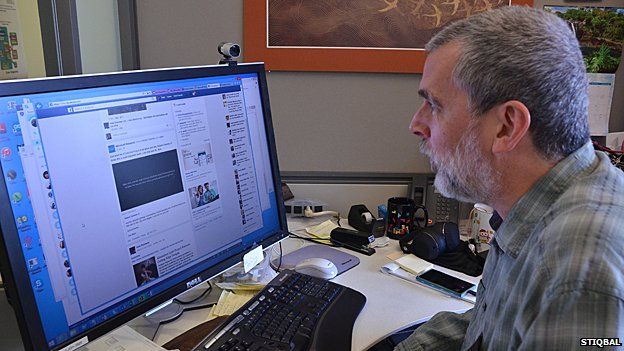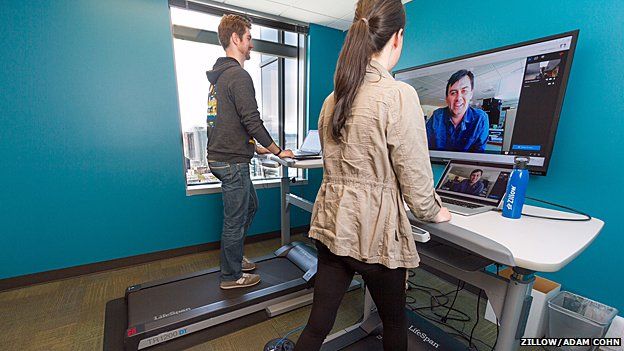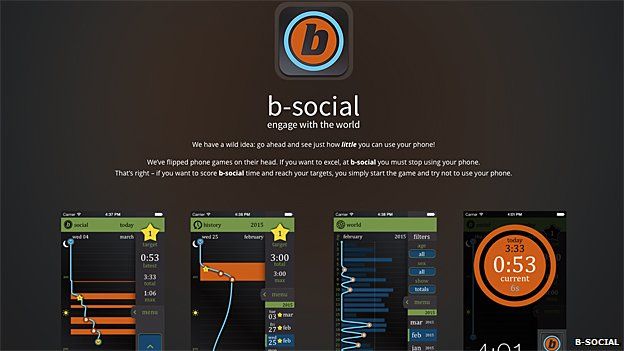
Losing focus: Why tech is getting in the way of work
Before you read this article I want to ask you a simple question.
Have I got your full attention?
Probably not. And that's especially true if you are looking at this in your office.
Finding focus is a something almost everyone has to deal with. And research figures in the US show that in the workplace we are having more and more trouble keeping both internal and external stimuli at bay.
Blame it on technology.
Status update
Professor Gloria Mark of the Department of Informatics at the University of California says email, social media, notifications and countless other digital distractions are eroding our ability to concentrate on individual tasks in the 21st Century.
"Back in 2004 we followed American information workers around with stopwatches and timed every action," she says.
"They switched their attention every three minutes on average. In 2012, we found that the time spent on one computer screen before switching to another computer screen was one minute 15 seconds.
"By the summer of 2014 it was an average of 59.5 seconds."

Social media, email, game notifications, instant messaging - all of these are making it more difficult for workers to concentrate
Academics and scientists are becoming increasingly interested in the effects of technology in the work place.
This is perhaps because there is relatively little research available about the impact of websites like Twitter and Facebook, or games like Candy Crush, that seem to be deliberately aimed at keeping us constantly engaged, to the detriment of work.
Cultural anthropologists, such as associate professor Natasha Dow Schull from the Massachusetts Institute of Technology (MIT), point to the work of Mihaly Csikszentmihalyi, who several decades ago crystallised the idea of "flow".
Prof Schull says there are several characteristics of a focused state that Mr Csikszentmihalyi identified.
"It's to do with having a sense of control. It's about having a choice to be drawn into something compelling, and it doesn't exceed your capabilities or leave you feeling confused and frustrated that you don't know how to do it," she says.
"To get 'flow' your activity needs to match your ability. But I have found in my own work to think about focus as not being all on you and to recognise it can be affected by your environment."

Being surrounded by noisy co-workers and office machinery probably doesn't help either
Go with it
"Flow" is the basis of a streaming audio service called Focus@will.
It aims to blend into the background so successfully the listener is unaware of its presence, whilst keeping their mind in a prolonged flow state.
Founded by Will Henshall, a member of the original Londonbeat dance group that had a hit with I've Been Thinking About You, the service remixes music of various types and speeds.
Most tracks start off as a basic instrumental, but then are completely re-engineered.
"We discovered it's not only vocals but instruments that sound like a human voice that are also pretty distracting," he says.
"A good example would be a cello. Also, no saxophones, bassoons, synth sounds and no lead electric guitars. About forty other elements are tagged because they affect the non-conscious mind."
That's why listening to your favourite tracks on Spotify or Pandora might have the opposite effect.
If you love a tune, you'll recognise it and get distracted by it, even momentarily. And that's all it takes to lose concentration.

The Focus@will website provides a selection of audio channels designed to let the listener focus
Focus@will claims about two thirds of the population can benefit. But the rest do not find the service useful at all.
There are channels called Uptempo and Alpha Chill, as well as drumming and coffee shop atmospheres.
For people with attention deficit hyperactivity disorder there's one called ADHD Type 1. About 4% of members listen to nothing else, but to those people who do not have ADHD, the channel is almost unbearable.
"We are constantly tuning our back-end algorithm," says Mr Henshall.
In-house research has found about half of listeners can concentrate non-stop for about an hour. And about 20% can stay focused for up to two.
The site's algorithms deliver a personal stream of music, taking into account responses to some initial questions, as well as how long you have been listening. It also adapts to individual usage over time.
Mr Henshall reports anecdotally that using a walking treadmill desk setup in conjunction with streaming audio seems to increase the level of focus for some people.
Going walkabout
Peter Schenk, president of Lifespan Fitness, which produces treadmills specifically for walking, says there is now an increasing number of research projects that indicate strolling on the spot for at least some of the day is beneficial for the mind.
"A recent Canadian study showed the connection between treadmill desks and improved memory and concentration," he says.
"Another new study covered treadmill desks and attention to detail. And a University of Minnesota study that became a major reference point showed the connection between treadmill desks and increased productivity."
The onslaught of digital distractions and an increasing number of stay-at-home workers might also be one reason why there are so many tools and apps marketed under the "improve your focus" banner.

The Lifespan treadmill is designed for walking - so you can use it while at work
Some, like The Pomodoro Technique developed by Francesco Cirillo, have been around for many years.
It involves setting a kitchen timer or digital equivalent to 25 minutes and calling it a Pomodoro.
It might take several Pomodoros to complete a project but each one must be distraction free.
In-between Pomodoros a five-minute break is taken.
The idea is to enhance concentration, reach a goal in stages and finish everything, instead of allowing a task to become too overwhelming.

B-social is one of a range of apps to help avoid distractions - in this case by cutting the chord with your smartphone
A quick look in various app stores reveals an increasing number of software solutions that block websites, quickly cover a busy computer desktop or temporarily disable distracting apps.
They come with titles like FocusMask, OneFocus, Concentrate, B-social and SelfControl.
Researchers say while technology has had a detrimental impact on office concentration, they have some hope something positive will come from this new era of experimentation with services, apps and devices designed to increase attention spans.
It seems like a good idea - as long as we can keep our minds on it, of course.




